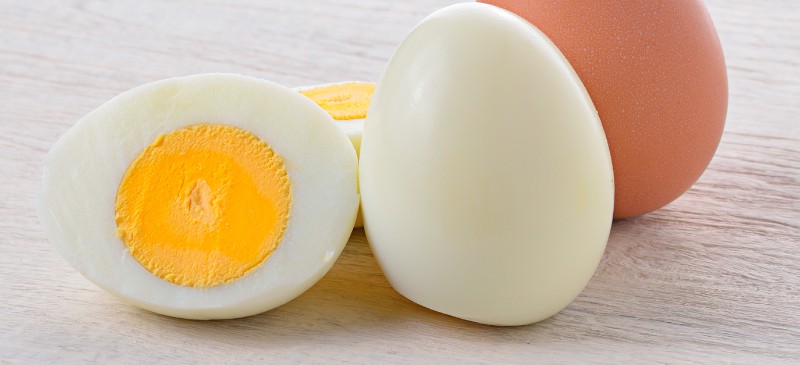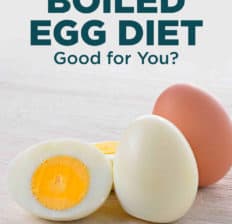This Dr. Axe content is medically reviewed or fact checked to ensure factually accurate information.
With strict editorial sourcing guidelines, we only link to academic research institutions, reputable media sites and, when research is available, medically peer-reviewed studies. Note that the numbers in parentheses (1, 2, etc.) are clickable links to these studies.
The information in our articles is NOT intended to replace a one-on-one relationship with a qualified health care professional and is not intended as medical advice.
This article is based on scientific evidence, written by experts and fact checked by our trained editorial staff. Note that the numbers in parentheses (1, 2, etc.) are clickable links to medically peer-reviewed studies.
Our team includes licensed nutritionists and dietitians, certified health education specialists, as well as certified strength and conditioning specialists, personal trainers and corrective exercise specialists. Our team aims to be not only thorough with its research, but also objective and unbiased.
The information in our articles is NOT intended to replace a one-on-one relationship with a qualified health care professional and is not intended as medical advice.
What Is the Boiled Egg Diet? Benefits, How to Follow, Risks & More
May 13, 2022

When it comes to weight loss, people seem to love super simple diet plans that involve eating only several foods (or even just one!) over and over.
Can you lose weight by just eating boiled eggs? According to certain people’s experiences, yes you can. It’s called the “boiled egg diet” and involves eating about three eggs per day, in addition to a limited number of other foods.
While there certainly are many health benefits of eggs — for example, they’re high in protein, B vitamins and choline — eating them exclusively has pros and cons. This approach can make it easy to remain in a calorie deficit, but it might also cause indigestion, constipation, and low intake of essential vitamins and minerals.
What Is the Boiled Egg Diet?
The boiled egg diet is an eating plan that includes lots of hard boiled eggs, in addition to some other foods.
Two to three eggs daily are usually eaten with breakfast plus lunch or dinner, along with other low-calorie foods like vegetables and some fruits.
The boiled egg diet is essentially a low-calorie, low-carb diet, which means it can help you lose weight, but it’s probably not an eating plan you can stick with for more than a couple weeks.
How to Do It (Meal Plan and Tips)
How does the boiled egg diet work? And perhaps most importantly, how long do you need to follow it?
There are different ways to do this diet, with durations ranging from three to 14 days.
Is a three-day egg diet long enough to cause weight loss? It may be, depending on what else you eat.
Of course, the longer you follow any low-calorie eating plan, the more weight you’ll probably lose. (Learn “how many calories should I eat a day?”)
Here’s what you need to know about following the boiled egg diet plan:
- The most popular approach includes three meals per day, at least two of which include hard-boiled eggs, but no other snacks between meals.
- Eat two eggs every morning for breakfast with vegetables or fruit.
- Lunch should include one egg or another source of lean protein, plus more vegetables.
- Dinner is similar to lunch, with lean protein plus veggies and perhaps more fruit.
- Added sugar, dairy products, grains (even whole grains) and even most added fats are not allowed on the diet.
The bottom line: You’ll be eating two or three eggs every day, so you better really like eggs if you plan to follow this diet!
Lean proteins are a big part of the diet, meaning not only eggs, but also poultry and fish. In some ways, the egg diet is similar to the Paleo diet because it emphasizes protein and vegetables but not many carbs and no added sugar.
Non-starchy veggies are also included in most meals, since they are low in calories but filling — plus they provide lots of antioxidants, vitamins and minerals.
Here are foods that are allowed on the boiled egg diet plan:
- Eggs (usually hard boiled)
- Skinless chicken, turkey and duck
- Fish, such as salmon, halibut, cod, flounder, tuna, etc.
- Pork tenderloin or sirloin
- Non-starchy vegetables of all kinds, especially leafy greens like spinach, kale, Swiss chard, arugula, etc.
- Other veggies, like zucchini, peppers, mushrooms, green beans, broccoli, cauliflower, onions, carrots and tomatoes
- Certain fruits, such as berries, melon, grapefruit, lemons and limes
- Small amounts of olive oil, coconut oil, butter and mayonnaise
Foods that are off-limits on the boiled egg diet include:
- All processed foods
- Foods with added sugar
- Sweetened beverages
- Dairy products
- Starchy vegetables, including potatoes, corn, beans, peas and legumes
- Some fruits, such as bananas, pineapple, mango and all dried fruits
Benefits
What are the benefits of eating lots of eggs? For example, how much protein is in an egg, and does this help with fat loss?
One advantage that the egg diet has is that it’s high in both protein, from things like eggs, poultry and fish, and also fiber from vegetables and some fruits.
High-protein diets are known for being filling and often effective for weight loss since protein foods decrease “hunger hormones,” which results in satiety (less hunger and cravings). Protein also requires more energy (calories) for the body to digest and metabolize, in the process supporting a healthy metabolism.
Based on the fact that it’s high in protein and low in processed foods, potential benefits of the boiled egg diet can include:
- Consuming lots of protein, which helps maintain muscle mass and controls your appetite.
- Contributing nutrients to your diet such as vitamin B12, iron, choline and antioxidants like lutein and zeaxanthin. In fact, eggs have been said by some nutrition researchers to have “one of the lowest energy to nutrient density ratios of any food.”
- Cutting out processed foods, especially those made with refined grains and added sugars. Instead of having things like soda, juice, desserts and bread, meals include more “whole foods” like eggs, meat and veggies.
- Naturally lowering calorie intake by eliminating highly palatable foods, such as pizza, frozen meals, burgers and so on.
- Increasing fiber intake from vegetables and fruits helps you feel full and provides key nutrients. Fiber also supports gut health by reducing constipation and helps healthy gut microbes thrive.
Risks and Side Effects
Is a 14-day egg diet dangerous? Not necessarily; the problem is more that it’s a “fad diet” and not a great long-term eating plan.
While eggs are a healthy food and there’s nothing bad about eliminating refined grains and sugar from your diet, it’s unnecessary for most people to deprive themselves of foods like legumes, starchy veggies, all fruits and whole grains (as long as they don’t cause digestive issues).
Should certain people avoid eggs? For example, are eggs considered dairy, and can they cause side effects?
Eggs are not a dairy food since they come from chickens and not cows, sheep or other ruminant animals. They contain no lactose and shouldn’t contribute to lactose intolerance symptoms.
That being said, eggs can sometimes cause allergic reactions in some people. Even though “moderate” egg consumption (about one egg per day) isn’t tied to increased risk for cardiovascular disease, eating lots of eggs might trigger cholesterol issues or digestive problems in people with susceptibilities to these conditions.
Are There Better Alternatives?
Rather than trying the egg diet, consider having eggs as part of a more balanced, anti-inflammatory diet that is more sustainable.
Low-carb diets, such as the egg diet, are not always the best choice for everyone looking to lose weight, considering that carbohydrates affect functions of the brain, gut and muscles. If you’re prone to fatigue, constipation and mood swings, including more healthy carbs in your diet, which provide glucose that fuels your body, may be a better approach.
Another important consideration is the need to diversify your protein sources. Research suggests that people who consume protein from both plants and animals, such as legumes, dairy, meat and fish, tend to be healthier overall.
In conclusion, most research overwhelmingly suggests that we should aim to eat a diet similar to the Mediterranean diet (or MIND diet), which can include some eggs but also plenty of veggies, fruits, fish, legumes, unrefined carbs like whole grains, nuts, seeds and olive oil. This type of diet is supportive of heart and metabolic health, plus much more.
Ideally, emphasize these foods in your meals by combining ingredients with fat, fiber and protein, which is most likely to make you feel full and support weight loss/weight maintenance.
Conclusion
- Can you lose weight on an egg diet? Possibly, although it might not be the most enjoyable nor healthiest option.
- Considering the boiled egg diet involves cutting calorie intake, it’s likely to promote weight loss, yet it’s restrictive and hard to follow for more than a couple weeks.
- Because the boiled egg diet is not the most balanced eating plan (it excludes some fruits, starchy veggies, whole grains, dairy and many fats), a healthier alternative can be having eggs as part of a Mediterranean-style diet.
- For the most benefits, switch up the types of protein-rich foods you eat, including some eggs along with fish, poultry, beans, legumes, nuts, seeds and grass-fed meat.


